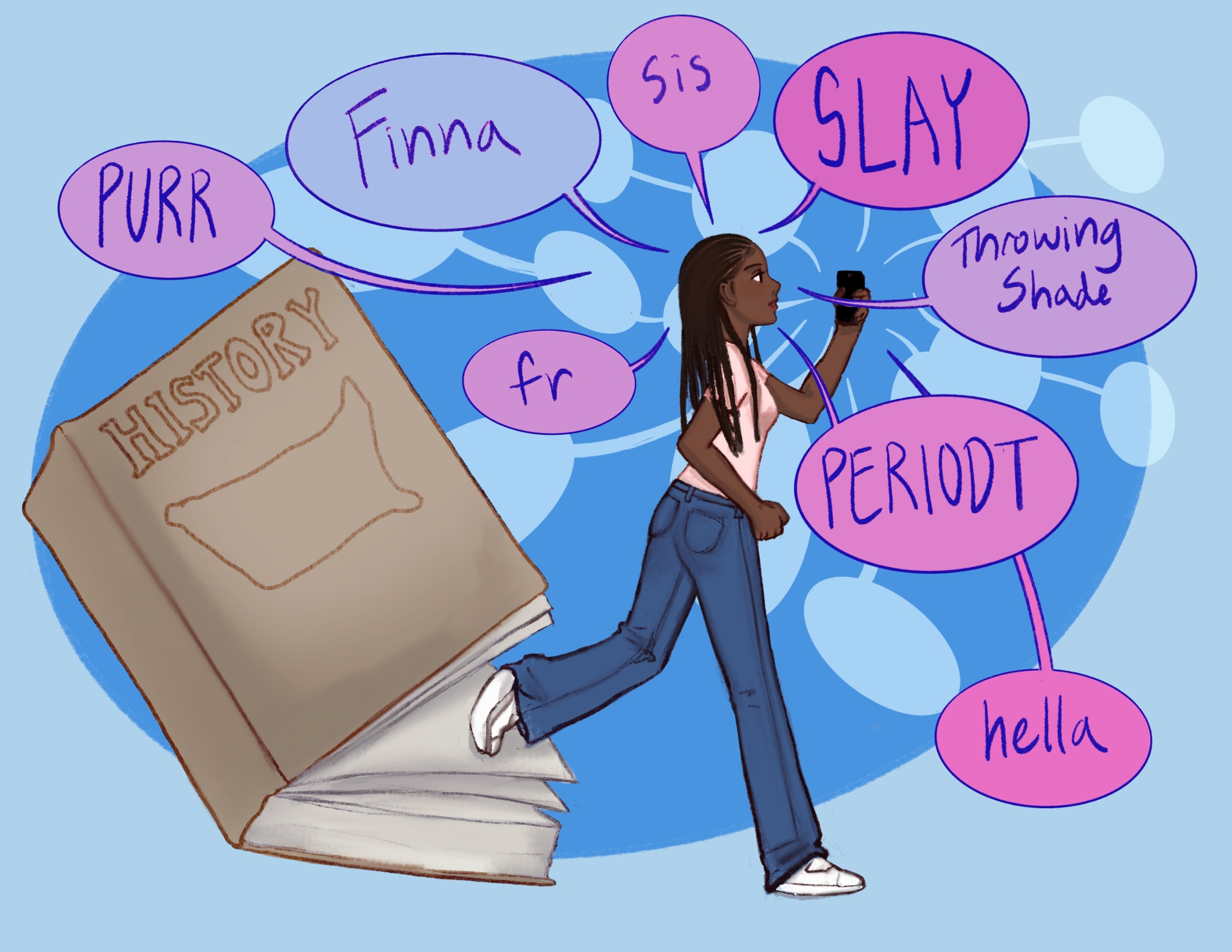“If Black English Isn’t a Language, Then Tell Me, What Is?” famed civil rights activist James Baldwin said. He was referencing the culture and history behind ebonics and African American Vernacular English (AAVE). AAVE is a dialect spoken by many Black people around the United States. An especially significant aspect of AAVE is that it is constantly changing and varies from state to state. This means that Black Americans have created a fluid and ever-changing historical and cultural cornerstone. The history of AAVE is debated, but it is generally agreed that AAVE can be traced back to the many people enslaved in the U.S. during the transatlantic slave trade. Linguists argue whether AAVE is a dialect adapted from English that colonists used, or if AAVE is its own mix of languages from the U.S. and Africa. An interesting phenomenon has been occurring for years where the AAVE lexicon had begun to heavily bleed into all Americans’ vernacular.
Berkeley High School junior Isaiah Payne both appreciates and finds issue with the commonality of AAVE now, “We’re sharing our culture and slang, but it becomes oversaturated and forced,” he said. He brings up the point that AAVE is just a way that people speak, but when others attempt to adopt it, sometimes it simply becomes too much. AAVE is just people being themselves, but when others not of that culture who don’t understand it try to use AAVE they are not being themselves.
BHS junior Joshua Yabusaki thinks showcasing AAVE is extremely important. “It’s how you represent your culture and its region so it shows where you’re from,” he said. He speaks to the importance of representation. He considers the new use of AAVE to be interesting because it takes from all parts of the country, and differs so much from place to place. One suggestion of this idea is how during the Great Migration, Black Americans moved from the south and took much of their culture, including AAVE, and it mixed with the vernacular of the places they traveled.
Cailey Larmore, a student teacher for the International Baccalaureate Language and Literature course at BHS, considers how linguistics can be used for both harm and wellbeing, “I think about the ways in which standard American English and the hegemony of that marginalizes lots of groups of people and enacts linguistic violence, and I think about my role as an English educator in making sure that students feel that they are allowed to speak in the ways that they are comfortable speaking but also equipping them with the academic language to be able to succeed in education, especially with college,” they said. They spoke about how American English dominates much of the world, used in many business deals and trade agreements, but places need to realize that alternative ways of using English are just as useful and rich.
Larmore also speaks to the ways that AAVE has been used and misused by even more groups, “I do see the co-optation of AAVE, like it’s sort of been conflated with Gen Z speak or like internet speak or internet slang,” they said. This brings up the interesting point that because of the internet and social media, more people are being exposed to AAVE than they were twenty years ago. By giving people access to ways in tweaking their language usage, more people are going to adopt the specifics of AAVE. For example, saying “periodt” or “throwing shade” are both commonly used phrases used by many on social media. Using the phrases without accreditation, however, is an issue. It’s like not citing your source; you have to acknowledge where you got this useful new phrase and not just take it for yourself. The phrase “Periodt” comes straight from AAVE, and “throwing shade” is extracted from people of color queer spaces.
AAVE can help to change the English language. It is becoming more popular, but is consistently getting used improperly or without credit. Individuals should do more research before they incorporate a new word into their vocabulary, because when falsely used, it can take away from the true origin of the vernacular.





